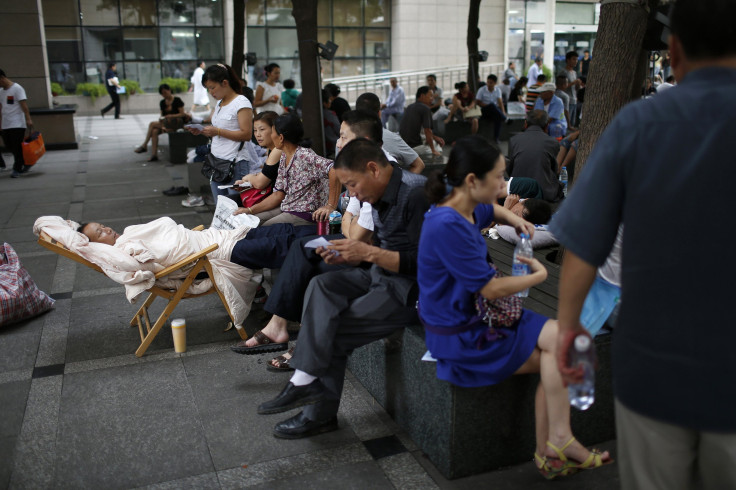China To Ban Hospitals From Marking Up Price Of Medication, But Funding Shortfall Questions Remain

SHANGHAI -- China has introduced reforms to ban the country’s hospitals from marking up the price of medicines they prescribe, as part of plans to change “public hospitals' reliance on medicine sales,” according to state media.
The rule change, announced by China’s cabinet -- the State Council -- on Sunday, came as part of new guidelines aimed at creating what it called a “modern hospital management system,” according to the official China Daily. It’s the latest in a series of recent measures aimed at tackling public dissatisfaction with China’s medical system.
Despite two decades of medical reforms, Chinese hospitals and clinics have continued to make money from medicine sales. They typically charge a 15 percent mark-up on the cost of drugs they prescribe, which is met partly by patients themselves and partly by medical insurance, at least for permanent urban residents.
The reforms, which have been trialed in 17 cities, will now be expanded to 100 cities this year, and rolled out to all the country’s 6,800 public hospitals by 2017. The State Council said the new rules would “change public hospitals' reliance on medicine sales to supplement their income,” the China Daily reported. It said “public hospitals should be operated for the public good, instead of seeking lucrative gains,” and should provide “accessible, equal and efficient” service for all.
The State Council also called on hospitals to “retune” salary policies, apparently in an attempt to prevent staff taking bribes to prescribe certain medicines, in order to supplement their meager salaries -- a phenomenon that experts say has led to massive over-prescription of medicine in China. The new guidelines stipulate that medical insurance plans should calculate repayments to hospitals based on the type of disease being treated, rather than the medication and services provided.
The State Council acknowledged that implementing the reforms would be an “arduous” task, however, according to the South China Morning Post. In the past, hospitals have argued they have little choice but to mark up medicine prices, since only around 10 percent of their funding comes in direct government subsidies. Chinese state media have reported that many hospitals participating in pilot reforms have been making losses since they cut the prices they charged for medication.
The new guidelines do not specify exactly how hospitals will make up for any shortfall in income -- though they do say that public hospitals will be allowed to “readjust the price charged on their medical services, such as doctor consultation.”
Nevertheless, they stress that by 2017, patients should not have to pay more than 30 percent of the cost of treatment themselves. Patients currently pay different proportions, depending on their insurance program, which varies from city to city, and between cities and rural areas, where cover is more limited.
The apparent contradictions in these goals show the sheer complexity of streamlining a health system that has been in a constant state of reform for the past two decades. Officials have previously described many reforms as having failed -- and the Southern Metropolis Daily website quoted officials in the State Council as saying that while some progress had been made, some “significant contradictions and problems” remained. It said some aspects of the system were still “unreasonable,” and patients still had to shoulder a “relatively heavy” portion of their medical costs.
At the same time, the government has recently turned to the market, lifting controls on the prices of many medicines, as it seeks to reform a pharmaceutical industry that has been hit by a series of scandals involving bribing hospitals and doctors. It has also said that it wants to expand private medical care -- saying that private hospitals should provide 20 percent of beds in the Chinese medical system.
The authorities are also seeking to expand local medical centers and clinics, in a country where the lack of a family doctor or general practitioner system has led to many people seeking treatment in large hospitals for very minor ailments.
The pressure on the country’s major hospitals has also led to frequent cases of bribery by patients seeking to get the best treatment -- or simply an appointment with a specialist. The head of a major hospital in the southwestern city of Yunnan was recently put under investigation, accused of taking more than $5 million in cash and 100 apartments as bribes.
© Copyright IBTimes 2024. All rights reserved.






















